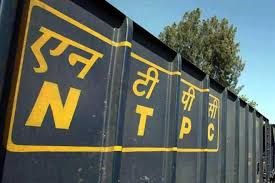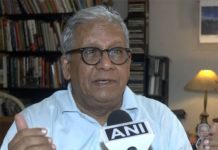https://www.moneycontrol.com/news/business/bmc-should-learn-about-waste-management-from-ntpc-4380831.html
NTPC is doing things for waste management, which MCGM should have done
RN Bhaskar – 28 August, 2019
Earlier this month, the Municipal Corporation of Greater Mumbai (MCGM, also known as BMC or Brihanmumbai Municipal Corporation) received only one bidder for managing dry waste in Mumbai, media reports (https://timesofindia.indiatimes.com/city/mumbai/dry-waste-recycling-plan-for-south-mumbai-gets-1-bidder/articleshow/70746419.cms) suggest. The plans involve MCGM giving to the winning party around 5,000 square meters of land in South Mumbai (near Badhwar Park).
The news reports stated that MCGM expected the bidder to spend Rs.6 crore. The municipal corporation itself would be wiling to spend Rs.4 crore as viability gap funding. The proceeds of the waste management plant could be sold by the bidder and the revenues kept by him to meet operating expenses. The bidder would have to develop a door to door waste collection system for collecting the waste. The sole bidder’s status remains to be confirmed.
And this is where one is left wondering if things could have been handled better.
First, when the tender was floated in 2018 (https://www.asianage.com/metros/mumbai/261018/bmc-issues-tenders-for-dry-waste-management.html) such dry waste processing plants were to be located at various places like Suraksha Garden, Colaba, Deonar, Malvani etc. It is better to get a pilot project done in a remote location than in South Mumbai.
Second, it is always better to locate waste management projects outside a city than within city limits. Do look at Tekniska Verken, one of the largest waste management centres in Sweden. It is located 200 km away from Stockholm. Even in a tiny country like Israel such units are at least 20 km away from cities.
Third, it is best to avoid giving out parcels of land in South Mumbai. It is worth recalling that the Adarsh Building Scam happened close by – and had to do with wrongful development of real estate.
Fourth, the aim is to have zero tolerance for landfills. This includes all waste, wet and dry, plastic and non plastic. The present scheme of MCGM is very limited. Moreover, the South Mumbai units will treat only a fraction of the 800 tonnes of dry waste produced by Mumbai daily (https://www.asianage.com/metros/mumbai/261018/bmc-issues-tenders-for-dry-waste-management.html). It had best be located elsewhere.
Lastly, MCGM could have learnt more about waste management from NTPC – a public sector company focussed on power generation.
It set up a small plastics reprocessing plant capable of producing just 250 kW of energy each day. The plant incinerates all the plastic waste from Banaras, and the hot gases are used for generating electricity. The plant has been running for over a year now.
Having gained some expertise in this area, NTPC recently signed an agreement with the Surat Municipality for treating around 15 lakh tonnes solid waste – both dry and wet — each day, which in turn will generate around 15 MW of power each day. The municipality will buy back this power on a cost-plus basis. That in turn will generate a 15.5% return on investment for the power public sector giant. As a senior official of the NTPC puts it, “100 tonnes of waste can easily generate about 1 Watt of power”. The plant should be ready and functioning in three years’ time.
At the same time, NTPC plans to treat 2,000 tonnes of waste per day for the East Delhi Municipal Corporation (EDMC). This plant too should be ready in around 30 months, and once again power from this plant will have to be purchased by EDMC on a cost-plus basis. The approximate cost at which power will be purchased is around Rs.7 per kWh. As the NTPC official explains, “We have the knowhow, we understand the power business, we have the land as well. The state sends the waste to our gates, and we take it up from there. This way, the states do not have to worry about waste management, we have a power purchase agreement in place, and manage waste in such a manner that it is financially and environmentally sustainable. Someone has to bear the cost to make it sustainable. The state agrees to buy back power at our rates, and pool it with the lower cost power they already sell”
At all these plants, emission levels will compare with the best in India, add NTPC’s officials.
If NTPC can do this, why can’t Maharashtra ask its own power generating companies to do this as well? Why is it that parcels of land are given away to private players within the city when this work should be done outside?
And when will the state adopt a policy of zero landfills, the way Sweden has done (http://www.asiaconverge.com/2014/08/lessons-we-can-learn-from-sweden-in-waste-management/). In fact, like NTPC, Sweden has shown how to make waste management a great business opportunity.
It does appear that the state has not done its homework properly. If it has, it does not wat to adopt the best practices that are available within the country. In fact, in order to ensure that waste management does not result in environmentally harmful emissions, it had better utilise a globally reputed third party inspection agency like SGS (www.sgs.com). This agency can ensure that the certificvation given by state bodies do indeed match up to global standards.
Past experience has shown that state agencies have erred grievously when it comes to certifying safety standards pollution, contamination of food and water, roads, bridges and even fire in urban centres. A globally reputed third party inspection service will prevent such scams from taking place.
Without such third party inspections, you will constantly discover more scams of poorly constructed roads and bridges, poor dredging of drains, poor waste management, and poor environmental standards (https://in.news.yahoo.com/pm-modi-key-schemes-being-043209583.html). And it should start learning about waste management from NTPC.










































COMMENTS